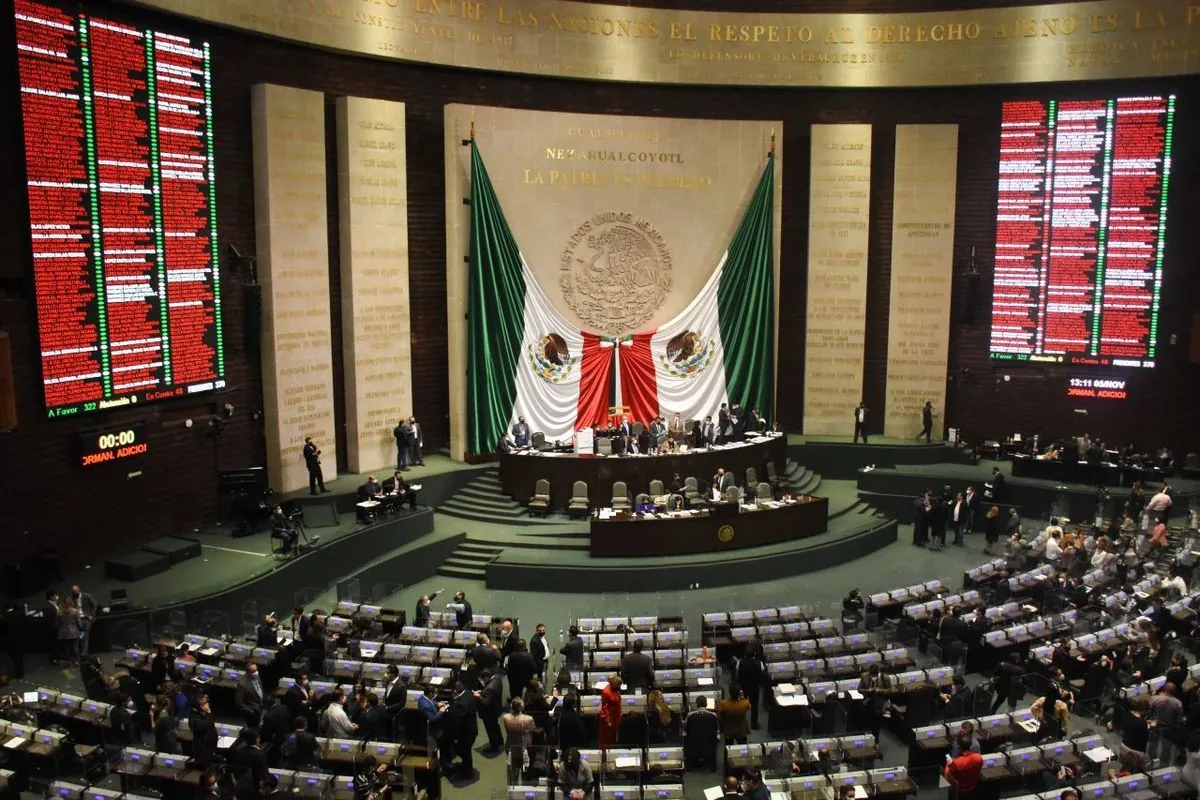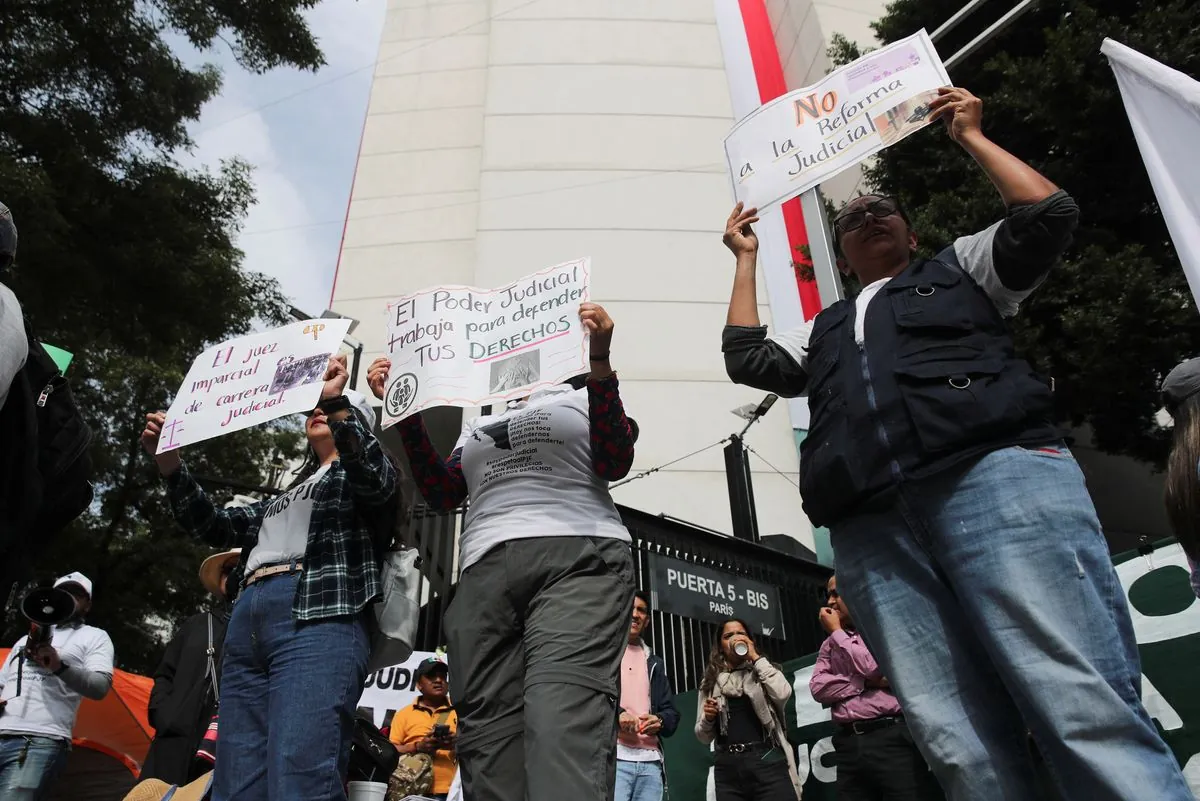Mexican Opposition Unites to Challenge Judicial Reform Vote
Mexican opposition senators rally against President López Obrador's judicial reform, potentially blocking its passage. The controversial proposal faces resistance amid concerns over judicial independence and democratic checks.

In a significant political development, Mexican opposition senators are joining forces to potentially thwart controversial judicial reforms proposed by President Andrés Manuel López Obrador. The reforms, scheduled for a vote in approximately one week, face unexpected resistance, complicating their anticipated passage.
The ruling party, Morena, and its allies currently find themselves one vote short of the crucial two-thirds majority required in the Senate to enact the reform. This legislative initiative aims to transform Mexico's judiciary by introducing popular elections for judges, a move that has sparked considerable debate and concern.
Opposition parties are standing firm against the proposed changes. Alejandro Moreno, president of the Institutional Revolutionary Party (PRI), has publicly stated that all 15 PRI senators will vote against the reform. Similarly, the Citizens' Movement (MC) has released a video featuring Daniel Barreda, an MC senator, declaring the party's unified opposition to the measure.

These developments highlight the complex political landscape in Mexico, where the multi-party system continues to play a crucial role in shaping national policies. The PRI, which governed Mexico for 71 consecutive years until 2000, and the social-democratic MC are leveraging their positions to challenge the ruling party's agenda.
The controversy surrounding the reform extends beyond the Senate chambers. Opposition lawmakers have raised allegations of intimidation and attempts to purchase senators' support, claims vehemently denied by Morena. These accusations add another layer of tension to an already contentious issue.
The reform's journey through the legislative process has been tumultuous. It recently passed the lower house amid street protests so intense that the vote had to be relocated to a sports complex. This public display of dissent underscores the divisive nature of the proposed changes.
A technical debate has also emerged regarding the precise number of votes required for the two-thirds majority. With 128 seats in the Senate, the mathematical threshold of two-thirds equates to 85.3 votes. This has led to discussions about whether 85 or 86 votes are necessary for passage, with Adan Augusto Lopez, Morena's Senate leader, suggesting 85 might suffice. However, opposition members and legal experts argue that 86 votes are required, setting the stage for potential legal challenges if the final tally is exactly 85 to 43.
The proposed judicial reform has raised concerns among investors and international observers, including the U.S. ambassador to Mexico. Critics worry that electing judges through popular vote could weaken a crucial check on executive power and potentially harm the business climate in Latin America's second-largest economy.
"The proposed judicial reform could potentially weaken a crucial check and balance of the executive branch and damage the business climate in Latin America's second-largest economy."
This situation underscores the importance of judicial independence in a functioning democracy. Mexico's current judicial system, based on civil law with elements of common law, has traditionally appointed judges rather than electing them. The proposed shift to popular elections for judges represents a significant departure from this established practice.
As the vote approaches, all eyes are on the Mexican Senate. The outcome of this legislative battle will have far-reaching implications for Mexico's judicial system, its democratic institutions, and potentially its economic landscape. With the opposition united and the ruling party scrambling for votes, the coming days promise to be a critical juncture in Mexican politics.


































